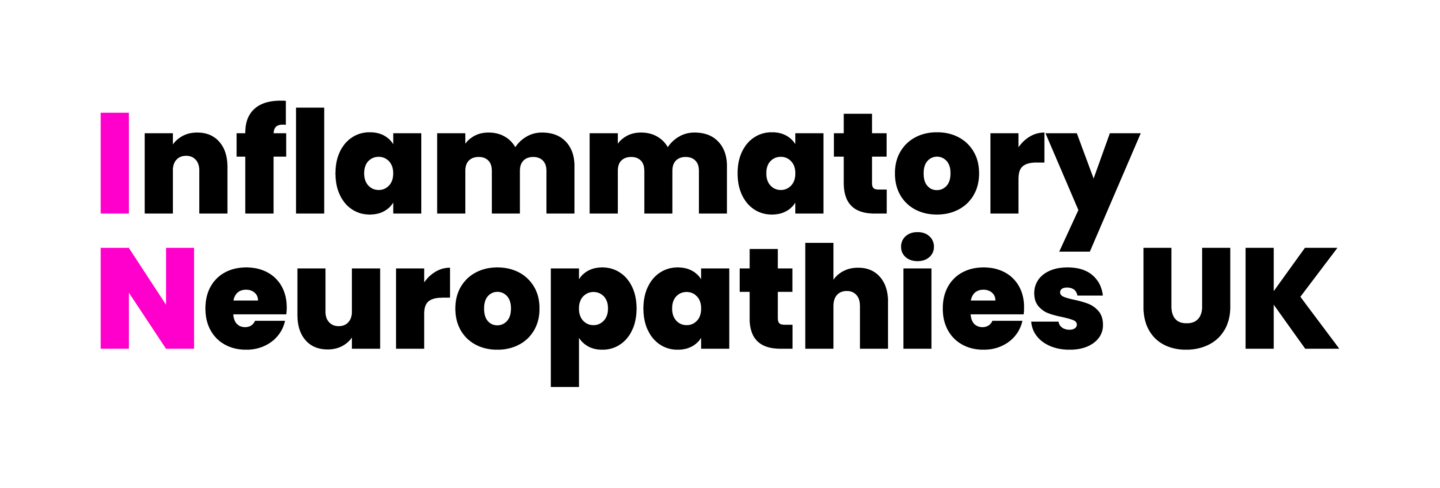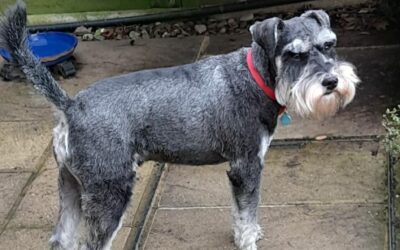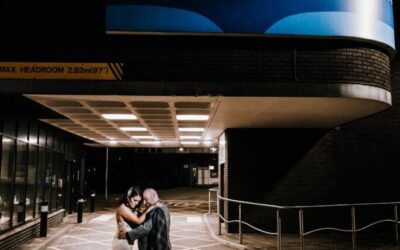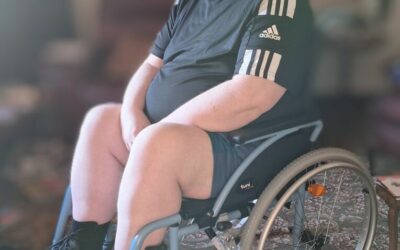We had only recently returned from a winter break in Tenerife and were looking forward to Christmas with the family. However, the events that unfolded on Saturday 22nd December 2012 were to change the life we once knew.
Ken had been out with friends the previous evening for a pre Christmas meal. That night he suffered with an upset stomach. The following day he went to work but returned at lunchtime stating that his tummy felt better but had lost vision in his left eye. By the time we arrived at A&E he had double vision and was very unsteady on his feet.
During the seven hours in A&E Ken had several tests but the doctors still didn’t know what was wrong. It was decided to keep Ken in hospital overnight and the following morning a lumbar puncture was performed. As the day progressed he became more unwell until his breathing became impaired and he was transferred to intensive care.
Ken was now fighting for his life. He was fully ventilated and in a coma. For five days a diagnosis evaded all the doctors. On 27th December a neuro consultant came to see Ken from another hospital and after 30 minutes we had that diagnosis. He has Guillain-Barré syndrome.
He remained in Darlington Memorial Hospital until 31st December, when a bed became available at James Cook University Hospital. He remained in intensive car for eight weeks (Ken had a locked in coma for seven of those frightening weeks). He was transferred to high dependency where he remained for eight months. In that time he went to Queen’s College Hospital in London for further tests which revealed a new diagnosis, GBS with Miller Fisher and Bickerstaff tendencies. Dr Mike Lunn – peripheral nerve damage specialist at Queen’s – diagnosed him with a extremely severe form of GBS. Ken had been in hospital now for 6 months. Dr Lunn said that at this stage Ken was three months into a two year recovery. On his return to JCUH the emphasis was on weaning from the ventilator. This did happen but it wasn’t easy and was very frightening for Ken. With perseverance he eventually became ventilator free. In December 2013 Ken was transferred to a ward in James Cook for observation and in January 2014 he was transferred to the neuro rehabilitation ward. He has now been in hospital for almost two years. he is improving but the speed of recovery is very slow. He has some movement in is arms and legs but with no function, ie) he still cannot walk or feed himself. He still needs assistance with every task.
This has been a traumatic journey for Ken. Throughout his illness he has shown true strength and has that “I will get better attitude”. As his wife, this has been an extremely difficult and emotional time but I know he will get there. We have been blessed with such good family and friends who have helped when they are able. He is improving but as his consultant said GBS stands for “getting better slowly”. Doesn’t matter how long it takes as long as he makes a good recovery, whatever that may be. We are ever optimistic that his recovery will be good but only time will tell.
The next stage in Ken’s recovery is for him to return home. However, that is proving difficult as our family home needs to be adapted for Ken’s needs. This again is another stressful phase in his recovery. But it has to be right to enable him to begin the next phase of his recovery and to regain some normality to both our lives.
This journey is primarily about Ken but all too often the people who are supporting the loved one got forgotten. Please remember that they are equally as important. They are the ones that make things happen especially when your loved one is unable to communicate.
I am so proud of my husband and of what he has achieved so far. He will get there, I just know he will.
Bev Longstaff
A Gathering of Friends
WHAT follows is not your typical GBS story.
Readers seeking to compare frightening and debilitating symptoms or to immerse in emotional journeys will find scant reference here. There are no war stories ahead. Instead what we have is a tale of friendship; the bonding of three patients and their families. It’s a tale of how three men, strangers at first and with varying degrees of GBS severity, became close friends. And then, how, through this friendship their wives became friends too. It followed that the six would establish The James Cook Gathering of GAIN.
My name is Phil Graham. I am 61 years old and, although I am the writer, I share this story in equal measure to Ken Longstaff (56) and Barry Singh (62). From here on in I shall write about us in third person perspective.
Phil, Ken & Barry met in Middlesbrough’s James Cook University Hospital in the latter weeks of 2013. At the time of writing (September 2014) Barry and Phil have been discharged for some weeks and Ken remains in hospital. As a measure of varying degrees of severity it is worth pointing out that Barry was in hospital for five months and Phil for nine. Ken, however, is now at twenty-two months. Barry, although a little unsteady, manages to get around his home and community unaided and attends outpatient physio once a week. Phil is confined to a wheelchair and uses a walking frame for all transfers and is awaiting out-patient physio due to commence in a few weeks. Ken needs hoisting for all transfers in hospital and, although he has the use of a wheelchair, has only recently managed to gain some limited movement in his legs and his right arm.
There are four beds in Bay no.2 on Ward 26. When Phil was admitted Ken was already there. A third bed was occupied by fellow GBS sufferer, Tom O’Neill and the fourth became a transit bed with a number of head injury and stroke patients passing through at intervals. When Tom was discharged soon after, his bed was taken by Barry Singh. By that time Ken and Phil had developed a friendship based on a mutual understanding of each others’ condition. They also found that each enjoyed the great outdoors and had, with their families, camped and climbed many hills in the UK. Importantly, both men shared and maintained a ‘glass half full’ attitude to their rapid disablement and slow progress towards recovery. Life stories were exchanged and Phil learned of Ken’s job as an MOT tester in Darlington and of his wife, Bev, and their grown up children, Jaki and James. In return Phil related to Ken his sole trader business as a photographer and musician and that he was married to Janet with whom they, too, had grown up children, Daniel and Padraic. At the same time Bev and Janet found themselves swapping tales of mutual interest and concern. This, in turn, led the two women to becoming friends and supporting each other through the stress and worry of holding down jobs, running homes and generally holding things together whilst their husbands lay in hospital.
When Barry came to the ward it was obvious to the others that he was not of Ken and Phil’s mindset. Although having lived in the UK most of their lives, Barry and his wife, Bal, are of Punjabi descent. Consequently, Bal in particular, the two are of differing customs and mannerisms. Barry was somewhat withdrawn, quiet and complex and initially chose not to involve himself in general chit chat with those around him. How quickly that would change. It was Ken and Phil that Barry saw their interactions as being more than mere male hyperbole. In them he recognised the discourse between the two, sometimes opinionated news swapping, sometimes slightly risqué stories raising a laugh, as pivotal to their mental and emotional wellbeing. After all, he thought, the physical side of GBS would take a long time from which to recover, with not much that one can do personally save for ward dispensed medication and physio, so why not help the time in hospital pass more amenably by striking out and joining in. And so he did, explaining to Ken and Phil that he was a bus driver based in Middlesbrough and that he was a father and a grandfather. And, similarly, Barry had tales to tell and stories to swap and it wasn’t many days before a firm trio of friendship was formed.
Bal, in turn, got to know Bev and Janet and before long the three women had begun sharing their own stories and experiences. Such was the developing closeness of the two triads, three GBS patients and three wives sharing similar concerns, that very soon a bond of friendship combining all six had forged. Before long it had become a regular occurrence for hospital meals to be spurned as Bev, Janet and Bal took turns bringing in food from home for all to share. Tales and stories emanating loud, side splitting laughter was common among the six with patients in other bays often enquiring, “what’s going on next door?” An additional characteristic friendship was the emotional help and support each gave the other. Shared experiences, both good and bad, were a recurrent theme.
Dr. Jenna Moffitt, neuro psychologist at James Cook University Hospital, had a professional interest in the health and wellbeing of three men. So much so that when Ken, Barry and Phil drew her attention to paucity of GBS related information available on the ward, she listened intently. Such information as there was available – leaflets, notices, booklets etc. – had been sourced only as a result of Bev and Janet’s tenacity through accessing the then GBS Support Group website. Dr. Moffitt listened too, to particular concerns that there was no recognition of the worry and stress endured by patients’ loved ones and the valuable support they give.
Through Dr. Moffitt, a meeting was arranged in the ward day room for the six to meet Gill Ellis, Support Officer from GAIN in Sleaford, Lincolnshire. It was through meeting Gill that the first seeds were sown towards setting up a hospital-based GBS support group. Gill outlined a number of options ranging from an ‘association’ requiring a committee and a bank account, through to an informal ‘gathering’. A full and frank discussion ensued but no decision was reached following the meeting, the three families electing to first consider all of the issues before deciding what to do. A few days later, however, ken, Phil & Barry were introduced to Paul Oxberry. Paul had been a GBS patient some three years earlier and Dr. Moffitt had suggested that it would be useful to hear Paul’s experiences of life and work since leaving hospital. Paul related how GBS had impacted upon his family and that it had taken him a year to resume work as an engineer. His story was both graphic and moving. None more so than when he said he had competed in the Great North Run half marathon in September 2013. What made Paul’s story more compelling was the fact that had completed the entire 13.1 miles with limited feeling in both feet.
Paul’s story was later relayed to Bev, Janet and Bal and, coupled with the now growing desire to ‘do something’, a further informal meeting took place where it was agreed to set up a focus group to support past, current and future GBS patients, to promote awareness of GBS and to raise funds for GAIN. Thus was born, with the help and facilitation of Dr. Moffitt, The James Cook Gathering of GAIN.
Phil Graham




